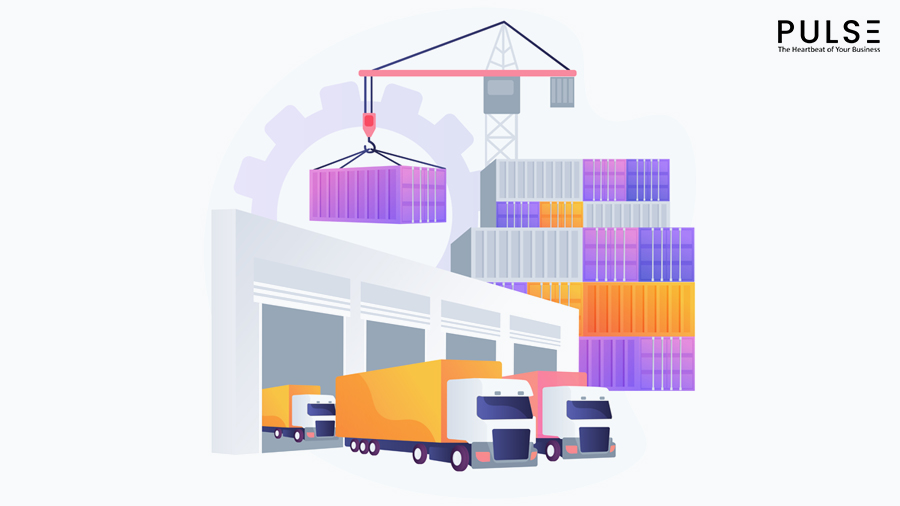The logistics and transport industry has been on the frontlines since the very beginning of the pandemic crisis. All the industries are up and running only because the transport industry is operational (not in full scale) even during challenging COVID-19 times. Yet, the logistics and transport industry was never so impacted before. Due to various restrictions by different governments, the supply chain, too, has broken for many companies resulting in delays and losses. To rise again, businesses should adapt to new processes and new challenges and embrace new ways of operations. New safety procedures and protocols emerge as the industry prepares to get safely back to business in full swing. At the beginning of the pandemic, the safety challenge felt too giant and complex for all logistics and transport companies. But with efficient EHS software and checklists, everything can be standardized and normalized for the post-pandemic world.
All challenges and complex tasks can be performed flawlessly with a simple digital checklist. Gone are the days when the manager used to audit different processes monthly or quarterly with a checklist printed on a sheet of paper. Current challenging times demand daily audits for safety. Everyday audits are not ideal on the sheet of paper. To ease the business, Pulse has digital COVID-19 checklists to simplify all kinds of audits for drivers’ safety, fleet management, etc. There are new guidelines for safety coming up every now and then. Checklists can be updated on Pulse as and when needed and it can be used immediately by the workforce. Audit reports are also saved in the software and based on these reports corrective measures can be taken to run the business smoothly and keep employees safe.
Use of technology to maintain safety during COVID-19
EHS software is very handy when it comes to auditing the transport and logistics operations and safety during COVID-19. A 360-degree software allows you to use checklists from the library of carefully crafted checklists, edit them as per specific needs, conduct inspections with visual proofs, flag issues, take quick corrective actions within deadlines, and access insightful reports.
By using such software, issues can be detected by sitting at home and actions can be assigned from any part of the world. In the times of COVID-19, this is truly an effective way to reopen your business, maintain safety, ensure health, adhere to COVID-19 state compliance, etc.
If your team is working in a hybrid model, communication among employees may face challenges but software like Pulse ensures that communication and transparency improve by streamlining the whole inspection and compliance management process on one single screen.
The overall supply chain can be decentralized with the use of EHS software and this can truly be miraculous for your business in COVID-19 times as single inventory and too many employees in one place can halt your business even if a single person gets infected.
Frequent use of smarts checklists
Frequent safety audits are crucial during COVID-19 so that there is no transmission of infection and business is not affected because of sick employees. During lockdowns, already there was a huge loss to the transport industry and there should not be any kind of hindrance once the business reopens. Using checklists for regular safety audits will ensure if all safety measures are followed and in case any employee shows COVID-19 symptoms, the spread can be avoided by isolating them.
The checklist for the safety of the logistics and transport industry will encourage the standardization of procedures to be followed by the entire workforce. With this, the workflow will improve and the best practices will be promoted.
Some of the common COVID-19 checklists are COVID-19 weekly inspection, COVID-19 safety inspection, Sanitation inspection, Hygiene inspection, Employee health inspection, Warehouse checklists, Business continuity checklists, etc.
Mandatory precautions for all teams
During this current pandemic, safety should be practiced in all departments of the logistics and transport industry. Be the mode by road, by air, or by sea, safety precautions to be followed at the office, at the pickup, at the packaging area, while loading and unloading, at the warehouse, in the vehicle, at check posts/borders, at rest stops, at delivery, at distribution centers, handling cargo and many more junctions.
Few simple and mandatory precautions are 1. Social distancing. 2. Use of appropriate PPE. 3. Frequent sanitization. 4. Disinfecting the facility and the vehicle. 5. Digital documentation so that no paper is exchanged on road or at delivery. 6. Digital currency and payment modes. 7. X marks, bright lines of separation, or colored dots signify safe distances at facilities. 8. Maintaining cleanliness and hygiene.
When everyone follows safety precautions there will be no chance for the spread of infection. PPE requirements must be made mandatory with mandatory face masks and gloves for the workforce when they are not alone in the facility or vehicle. In the logistics and transport industry, more precautions should be taken by personnel at warehouses, truck drivers and cleaners, and delivery personnel. Because there are more chances of being exposed to infection and transmitting it. Provide your entire workforce with required PPE including masks and face shields so that during operations all are safe.
Be updated and ready for more business
The logistics and transport industry needs to continuously upgrade and adapt to Environment, Health, and Safety compliance. This COVID-19 situation has given rise to contactless, easy, protected pickups and deliveries across the globe. The industry will be reinvented with the help of advanced technologies. Even governments of many countries are encouraging and promoting the logistics industry for flawless supply chain movement by using technologies. The industry is gradually adopting technology solutions like the use of EHS software to manage and improve their service quality with the safety of the workforce on top priority. Technology-led solutions guarantee business growth/expansion by enhancing service quality and customer management.
Leaders from various companies should think of ways in which their operations can be restructured and technology can be used to its maximum potential.
